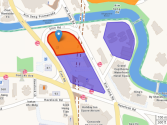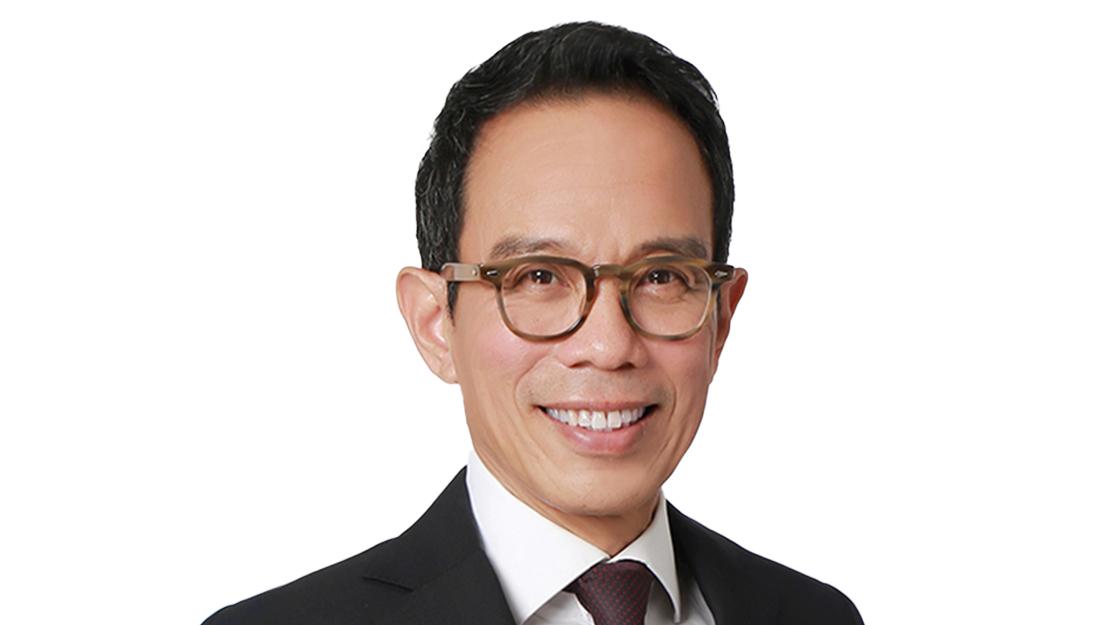
Flight-to-quality: Firms reconfigure to smaller but better spaces
Knight Frank also expects rents to increase 3% to 5% this year.
Corporates are reconfiguring their offices and seeking less space that can be used for more collaboration by the employees as the hybrid work set-up evolves, according to a report by Knight Frank. But despite this, they are taking up “better” spaces in terms of quality, which drives the “flight-to-quality” movement.
With a recovering economy and the Singapore government’s drive to grow the Information and Communications, and Financial and Insurance sectors, Knight Frank is seeing a steady demand for office space for 2022 with rents expected to increase 3% to 5% for the year.
Calvin Yeo, head of Corporate Real Estate for Knight Frank Singapore, spoke with Real Estate Asia Editor-in-Chief Tim Charlton to talk about the trends and outlook for Singapore’s office market.
Let's first take a look back over 2021. What interesting trends did you see over the last year?
Amidst nationwide vaccination in 2021, we saw corporates shift from a wait-to-see stance to actively rationalising their space requirements with many requiring up to 20% less space with hybrid working. The right-sizing of office space requirements in turn is driving a flight-to-quality movement. And as a result, we saw rents bottoming out in the third quarter of 2021, before improving slightly in the fourth quarter with prime stock registering an occupancy of 92%. The full year decrease in prime office rents was a mere 0.3% in 2021, which is marginal compared to a decline of some 10.2% in 2020.
Your survey said that 47% of companies are actually looking to improve the quality of their offices. Can you address these trends and concerns of corporate tenants and what they're looking for?
We conducted a global survey, and 47% of respondents expected the quality of space to improve over the next few years. With hybrid working, business leaders are increasingly compelled to create a productive environment that is enjoyable, flexible, and healthy, to work in for their employees, a workplace that also attracts and retains talents. On top of that, some 69% of respondents anticipated that they would resize their portfolio by more than 10%. And 90% of respondents still regard the office space as a strategic business device. What remains undeniable, the role of the office post-pandemic is to nurture productivity.
Your report also had another interesting finding that mainstream companies are deciding to rent some co-working space for new teams or new projects that might be shorter in duration. Talk to us about that.
We find the co-working space inventory in the market serving very well for swing space requirements when corporates have not totally rationalised their requirements. But nevertheless, we are seeing the permanent office space remaining very relevant for corporates bringing their employees back to a collaborative work environment in the long term.
Let’s talk about some of the companies that have done deals over the past few months in Singapore and what they are doing.
In addition to those from the report, whilst banks and financial institutions have been reducing their physical space with digitalisation even before the pandemic, the pandemic has accelerated the returning of space even more. For example, when Citi returned some 90,000 square feet (sq. ft.), Amazon, a tech company, was there to just pick up the space.
Your report showed that LinkedIn expanded its lease in MBFT Tower 2 to buy another 22,000 sq. ft. If you look at the dominant leases of space, would it be fair to say it's big tech and fintech or are there any other trends that you're seeing?
Last year's net new demand was largely spoken for by tech companies like ByteDance. They took up significant space in the [Central Business District] CBD. Another tech company, SEA, which took up an entire tower Rochester Commons outside the CBD at Buona Vista. So clearly, space that is being given up by financial institutions in the CBD and new supply outside the CBD are being very quickly backfilled by technology companies.
Can you share with us interesting trends in Singapore buildings that you've noticed, like new amenities, new features, new facilities, or new leasing structures?
I cite the example of Guoco Midtown. They are one of the few landlords who are providing flexible space, meaning they manage the space inventory and through advanced dialogue with their tenants, they're then able to provide for expansion requirements, given the uncertain new world order. There's also what we call “gym-like memberships”, at co-working spaces where you could buy passes for your staff. So there's the flexibility of going into co-working spaces, nicely decked up with virtual call rooms and quiet booths, and a conducive work environment if unable to return to the office or work from home.
Now looking forward to 2022, I think companies are still stuck between Team A working from home and Team B working in the office kind of setup. But what do you think is going to happen this year, and how's it going to affect our corporate strategies in terms of their corporate real estate?
For Singapore, as corporates crawl out of the pandemic and as our government drives growth in the information and communications, financial and insurance sectors, we are forecasting a steady demand for office space and a rental increase of some 3% to 5% for 2022. This is on the back of a steady prime new supply of some 800,000 sq. ft., which is very manageable given that we had about the same amount of new stock that came on stream last year that was approximately 89% committed.
Is there a shift away from the outer areas and big campuses into CBDs or is it the other way in Singapore? Because in America, traditionally, tech companies love the whole campus, which may be out of town
We're seeing a good balance. In town, we have Facebook and Amazon. We see Google out of the CBD at Alexandra, a business park location, and SEA being out in offices at Buona Vista. So it's a good balance of tech companies being located in the CBD and outside of the CBD.
Is there anything else you'd like to add that you think our viewers might be interested in knowing?
So if I may just use Knight Frank as a case study. Since the government has allowed 50% of our employees to come back to the office, we have made a decision to bring all our client-facing practice groups back to the office. We are seeing a lot of this with our clients as well, that their client facing groups need to come back more than the support functions.


















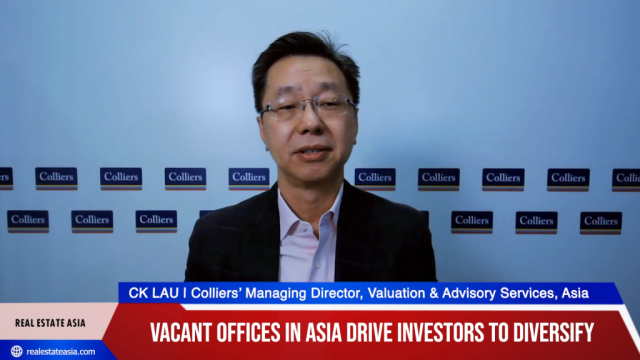
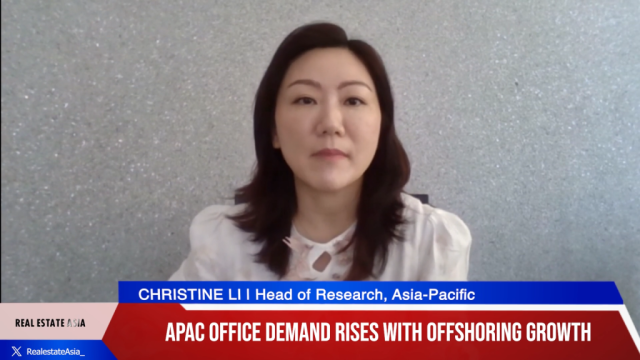
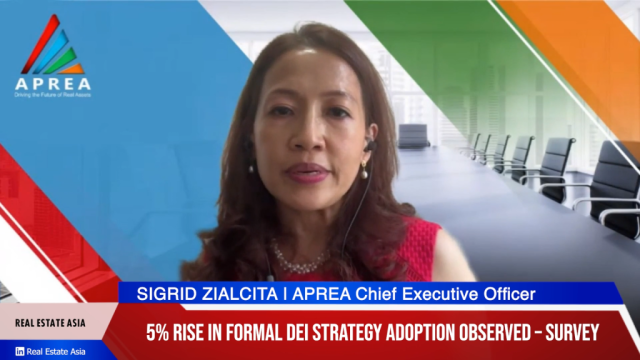
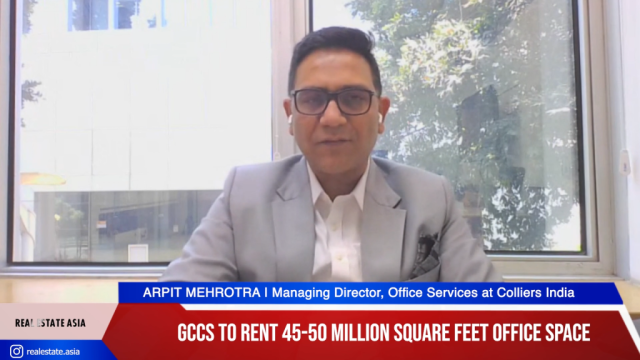

 Advertise
Advertise
